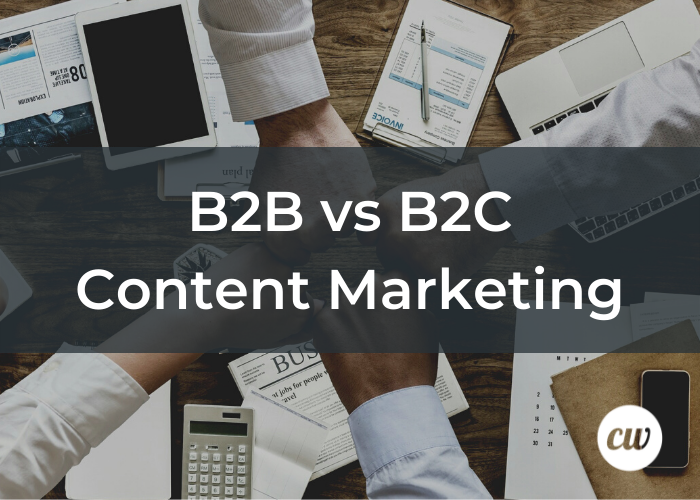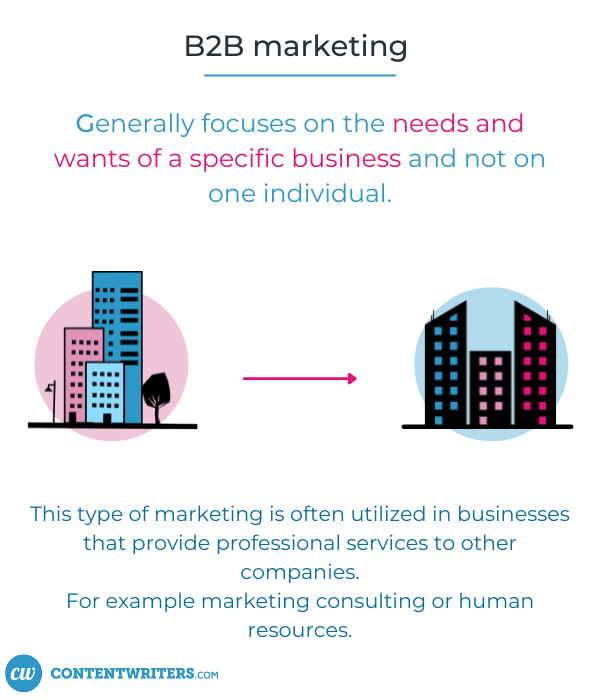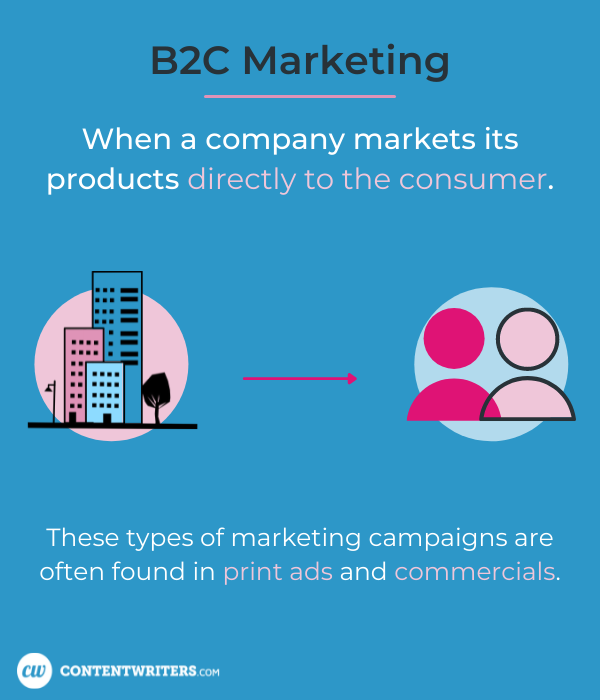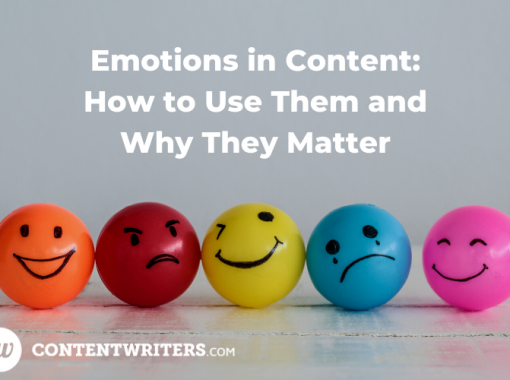
B2B vs. B2C Content Marketing
The difference between B2B and B2C marketing is often a point of confusion for business owners. But the distinction is easy to understand when you know what each type of marketing entails. In this blog, we’ll discuss the differences between the two types of marketing, why it matters for your business, and how to take advantage of both.
What is B2B Marketing?

The marketing is usually done through networking, email, and direct mail. An example of B2B marketing is an IT company sending out an email newsletter to their clients explaining the latest software updates.
What is B2C Marketing?
The most common form of marketing is B2C marketing, which stands for Business to Consumer. This type of marketing is geared towards the end-user—in this case, the customer.

For example, think about when you walk into your nearest grocery store and see a display with cereal on it. The company is trying to get you to purchase their product by displaying it in a way that entices you to buy it. They’re also relying on advertising strategies like commercials and sponsored content on social media channels to reach consumers directly.
The Difference Between the Two Types of Marketing
B2C marketing is a type of marketing that focuses on the customer and their needs. This type of marketing is often done to encourage consumers to purchase a product or use a service. On the other hand, B2B marketing focuses more on interacting with other companies and encouraging them to buy from you.
So when does your business need one or the other? The answer depends on what you sell. If you’re in the business of selling products, then B2C marketing would be better for you. On the other hand, if you sell services or work with other companies, then B2B marketing would likely be more effective because it targets a place where your competition doesn’t focus.
Why it Matters For Your Business
As an entrepreneur, it’s important to know if you’re dealing with B2B or B2C marketing. For instance, if you’re opening a restaurant, the two choices will look very different.
For example, if you open a restaurant supply store that’s targeting restaurants, you want to target companies. You’ll focus on the price point, quality, and logistics. On the other hand, if you have a restaurant, your goal would be to create an unforgettable experience for customers with tasty food and enticing ads.
How to Take Advantage of Both in Your Business
No matter what type of business you own, you need to understand the basics of marketing. To do this, you need to know the difference between Business-to-Business (B2B) and Business-to-Consumer (B2C) marketing.
Marketing for B2C is often more straightforward than marketing for B2B. This is because consumers find products on their own, so businesses don’t have to spend as much time or money promoting themselves.
But when it comes to B2B marketing, this is not the case. Those types of businesses are trying to sell their products or services to other business owners, so it’s important that they’re aware of their options in terms of digital marketing.
Digital marketing is one of the most valuable assets at the disposal of today’s business owners; it’s how you can establish an authoritative online presence and drive conversions. This is why it’s important for B2B marketers to keep up with digital trends like SEO and PPC advertising, which will set your business apart from competitors who may be ignoring these important marketing strategies.
Benefits of Selecting the Right Target Audience

The type of content you produce should be aimed at the right audience. If you’re a B2B business, you should create content that speaks to people in a business capacity. If you’re a B2C business, you should produce content that’s geared towards consumers.
There’s a big difference between the two types of content, but it can also be a powerful combination. B2B marketing is often overlooked, but it can provide a valuable source of information for your customers. If you use the right content to speak to your prospects, you’ll find success in all aspects of your business.
Melanie G. is a freelance writer and editor living in Tampa, Florida. She’s freelanced full-time since she left her writing job at Nielsen in 2012.




